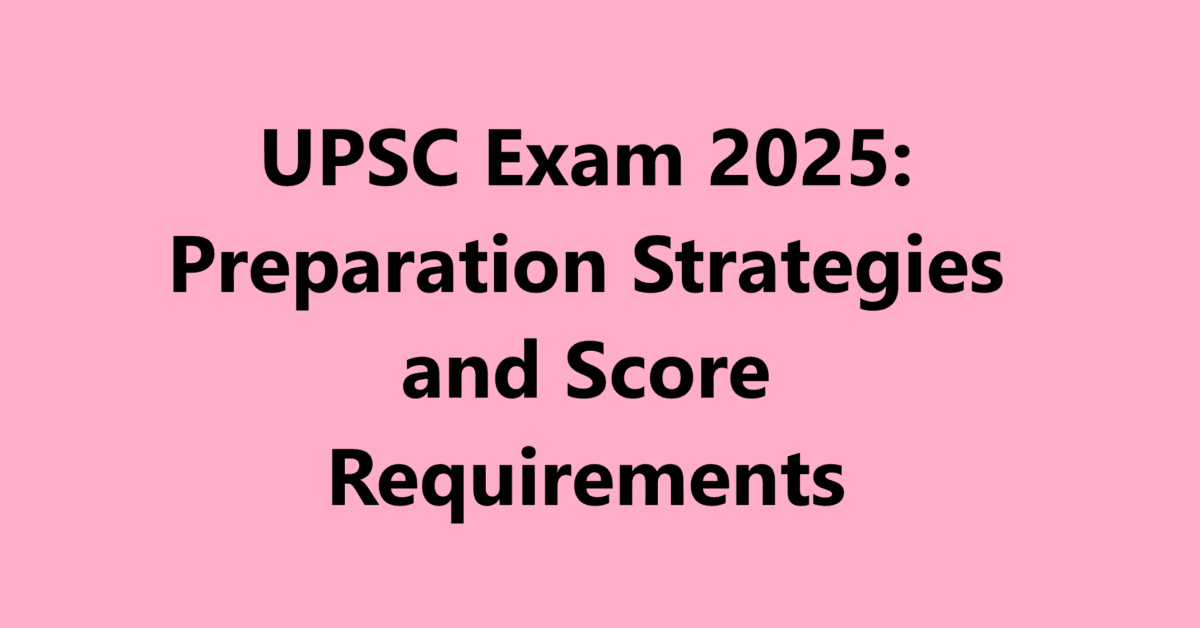The Union Public Service Commission (UPSC) exam remains one of India’s most prestigious competitive examinations, attracting thousands of aspirants annually. As the 2025 examination approaches, it’s crucial for candidates to understand the exam structure, the marks required for a favorable outcome, and effective preparation strategies.
Understanding the UPSC Exam Structure
The UPSC Civil Services Exam consists of three main stages:
- Preliminary Examination: This is an objective-type exam comprising two papers — General Studies I and General Studies II (also known as the CSAT). The CSAT is qualifying in nature but critical for overall ranking.
- Main Examination: This stage consists of nine papers, including:
- Four General Studies papers
- One Essay paper
- Two optional subject papers
- One Language paper (qualifying)
- One Indian Language paper (qualifying)
- Interview (Personality Test): Candidates who clear the Main Examination will be called for an interview, which assesses their personality, communication skills, and decision-making abilities.
Marks Distribution and Cut-Offs
While the exact cut-off marks for the UPSC 2025 exam won’t be known until results are announced, candidates should aim for a strong performance. Historically, the cut-off for the Preliminary Exam has hovered around 100-110 marks (out of 200) for the General Studies I paper, while the CSAT often requires around 30% to qualify.
Expected Marks for Mains and Interview
- Main Exam: Each paper is scored out of 250, making a total of 1750 marks. Generally, a score of around 600-650 marks is considered competitive for the General category to secure a place in the final list.
- Interview: The interview carries 275 marks. A good score here can significantly influence overall ranking. Candidates should aim for at least 170-200 marks.
Preparation Strategies
1. Understanding the Syllabus:
- Familiarize yourself with the UPSC syllabus and exam pattern.
- Focus on topics that frequently appear in past papers.
2. Timetable and Study Plan:
- Create a realistic study timetable that dedicates time to each subject, including optional subjects.
- Allocate time for revision and practice tests.
3. Quality Study Material:
- Select standard textbooks and resources. NCERT books, the Internet, and previous years’ question papers prove invaluable.
- Keep up with current affairs through newspapers, magazines, and online platforms.
4. Mock Tests:
- Regularly attempt mock tests to build speed and accuracy.
- Analyze your performance to identify strengths and weaknesses.
5. Group Study and Discussions:
- Engage in group studies to discuss complex topics.
- This can also provide moral support and motivate peers to perform better.
6. Physical and Mental Well-being:
- Maintain a balanced lifestyle with regular exercise and meditation.
- Take breaks to avoid burnout and keep your mind fresh.
7. Seek Guidance:
- Consider enrolling in coaching classes or seeking mentorship from successful candidates to gain insights into their strategies.
Conclusion
The UPSC exam demands dedicated preparation and a strategic approach. With the right mindset and resources, aspirants can navigate the challenges and emerge successful. As the 2025 examination approaches, candidates must buckle down and begin their preparation in earnest. With clarity on scoring trends and effective study techniques, success is well within reach. Good luck to all aspirants!


